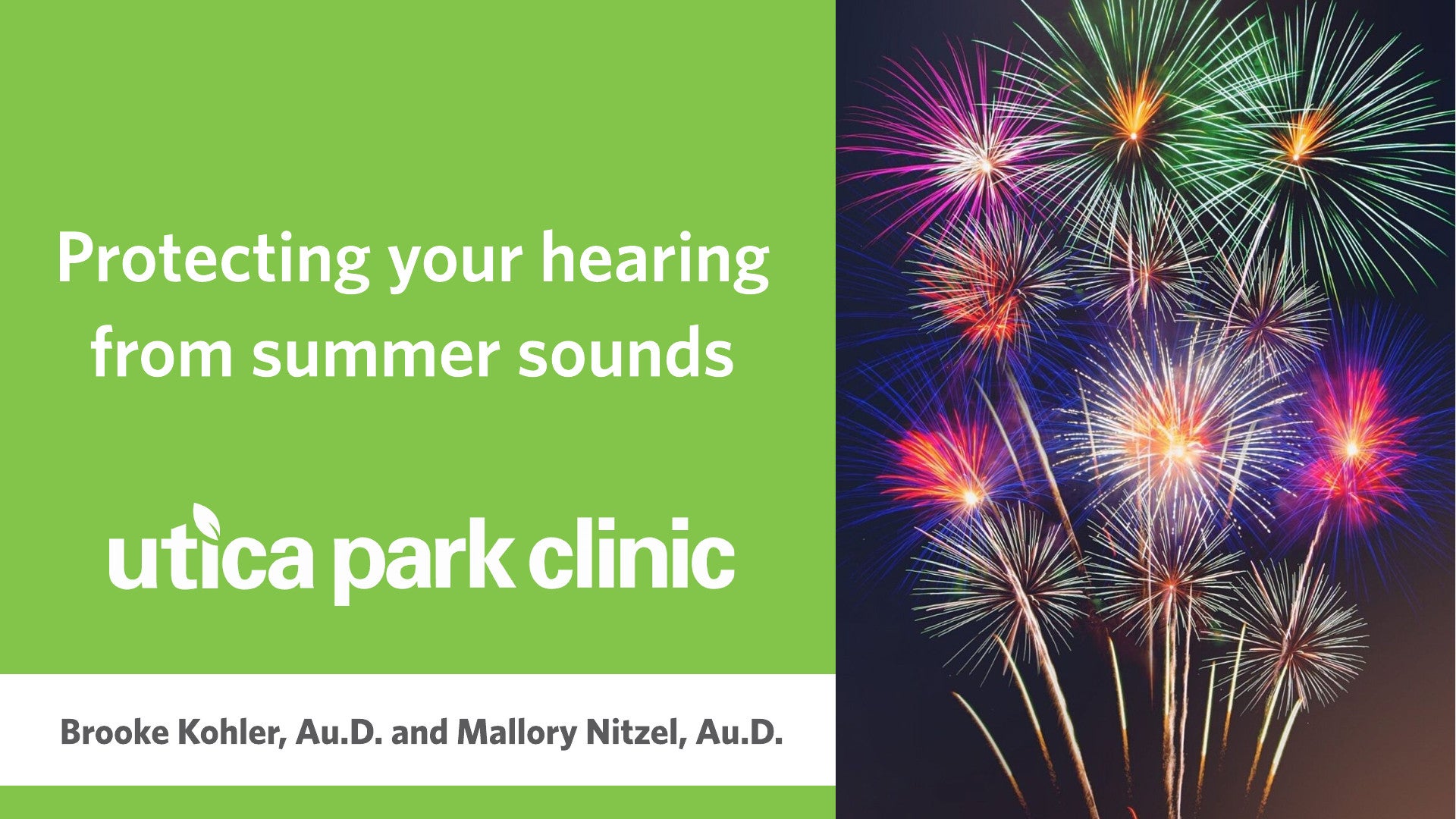Summertime is full of sounds: concerts, fireworks, festivals and other outdoor fun. These are all common activities, but exposure to loud noises can damage your hearing. Hearing loss is generally gradual, happening over a long period of time, but it can be preventable.
Brooke Kohler, Au.D. and Mallory Nitzel, Au.D. at Utica Park Clinic outline what can cause hearing loss, which sounds can be too loud and how you can avoid damaging your hearing during the summer.

How loud is too loud?
Generally, safe decibel levels for prolonged exposure are below 85 decibels (dB). Below are some examples of sounds at various decibel levels and their damage potential:
-
0-70 dB: Normal conversation, quiet office, rainfall. Safe for extended periods of time.
-
70-85 dB: Vacuum cleaners, noisy restaurants, garbage disposal. Not immediately harmful.
-
85+ dB: Heavy traffic, lawn mowers, food blenders. Can lead to hearing loss over time depending on intensity and exposure duration.
-
90+ dB: Nightclubs, shouting conversations. Can cause hearing damage relatively quickly.

-
120+ dB: Ambulance sirens, rock concerts, fireworks. Can cause immediate and potentially permanent hearing damage.
Common summer sounds
-
Fireworks: Fireworks, most often heard around the 4th of July, can often exceed 150 dB. The closer you are to fireworks, the louder they can be.
-
Concerts/music festivals: If you spend time around loud music, especially for a long period of time during a festival, you can expose your ears to 100+ dB.
-
Sporting events: Crowded stadiums with cheering fans, music and announcers can reach up to 120 dB.
-
Lawn equipment/power tools: Mowers, trimmers, leaf blowers and other heavy equipment can be extremely loud, even if you are not the person using the tool.
-
Water sports/boating: Noise from boat engines and echoing environments can also damage hearing.
Signs of hearing damage
If you begin to experience ringing or buzzing in your ears, have difficulty understanding speech in noisy environments, or turn up the volume on devices more often than normal, you may be experiencing hearing loss. Other symptoms of damage include ear fullness or pressure, sound sensitivity, dizziness or balance problems.
How to protect your hearing
-
Wear ear protection. Foam earplugs, molded plugs or noise-cancelling over-the-ear headphones can help protect your hearing from damage, especially in an environment with long-term noise exposure (concerts, sporting events, etc.)
-
Stand farther away. Keep your distance from fireworks, engines and speakers to reduce the decibel levels of the sound reaching your ears.
-
Remove yourself. Step away from loud environments.
Recommendations to prevent hearing damage may vary from adults to children because children's ears are much more sensitive. Dr. Theresa Horton, pediatrician at Utica Park Clinic, detailed specific ways to help protect children’s hearing in an interview with News on 6. You can view it here.
What do I do if I suspect hearing loss?
If you’re experiencing hearing loss symptoms, it’s a good idea to schedule a hearing test with an audiologist. Drs. Nitzel and Kohler welcome new patients at Utica Park Clinic near 91st and Hwy 169 in Tulsa and in Bixby. To learn more or schedule an appointment, click here or call 918-459-8824.

